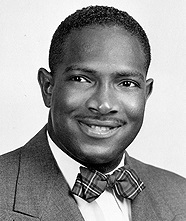Barnabas and Saul were sent from the church at Antioch and took with them John Mark as their “minister.” They had not gone far when John decided, for whatever reason, to return to Jerusalem. The Bible does not give the reason for his premature departure; no doubt it was justified in his mind. Maybe John felt that he was not really needed. Perhaps he was homesick. He was probably unprepared for the fierce spiritual warfare they encountered. He was no doubt shaken by the harsh response of Paul to Elymas, and the sudden blindness that struck that false prophet.
Premature departure from the mission field is still a serious problem. A pastor friend in Bowie, Texas, recently stated that his church has lost twelve missionaries in the last three years. In two years (2007 to 2009), thirteen Fundamental Baptist missionaries left Romania. It is our opinion that specialized pre-field training in language and culture learning, such as is available at BBTI, helps the missionary learn the language and adapt to the culture. Being able to communicate well and enjoy being with the people makes missionaries feel at home and decreases their temptation to leave.
Sometimes departure from the field is unavoidable. Missionaries die or become seriously ill. Advanced age may cause them to leave. Some are needed at home to care for aging parents. Political strife can force a missionary from his country, but does he have to return to America? Why not go to a nearby country with the same language where his message is also needed and where he can wait out the political upheaval in his country? Avoidable or not, his departure may leave a group of people without a gospel witness. It is especially lamentable if the departure was preventable.
According to William Taylor in Too Valuable to Lose (1997), 47% of our missionaries leave the field within the first five years. Of this number, 71% leave for preventable reasons. He found that 49% of departures are caused by relationship problems. In other words, the missionary had an unresolved conflict with the nationals, with other missionaries, or with his sending church or agency. The conflict might be between spouses. The stress of living in a new culture will exacerbate marital problems, and there will be no pastor or counselor nearby to help. Any type of defect will be revealed under the pressure of missionary service.
Another preventable cause of premature departure is immorality. If we think pornography and sexual allurement is prevalent in our country—and it is—it’s even greater in other places. As desperately as we need missionaries, we don’t need those with shaky marriages or moral weaknesses!
Probably the most commonly given reason for departure is health problems. Nobody wants a missionary to suffer for lack of medical care, but some questions are in order: Is the local medical service really so inferior that he must leave his field? Could someone be sent to help the family while they take advantage of good, affordable medical care in nearby places like Bangkok? Is the sickness really that serious, or is it exaggerated by culture stress? How can we better prepare the missionary to cope with that stress? When a family coming home for health reasons does not return to the field after the patient is well in a few weeks, should we not help the missionary deal with any further issues that are keeping him home?
Perhaps more careful screening should be done before sending out a new missionary. It would reduce the number of missionaries sent, but it may reduce premature departures. Consider the words of BBTI graduate and veteran missionary John Allen: “[We cannot overemphasize] the importance of the home church, and especially the pastor, being personally involved with the missionary he sends. In our experience, missionaries are sometimes sent with the approval of their church, but the pastor and church actually don’t know them well. The missionary may have a boatload of problems that are neatly covered up in the veneer of his appearance at church on Sunday and Wednesday. But what is his home like? How is he spiritually? What issues does he struggle with? To whom is he accountable for those issues? When things go all helter-skelter on the field, it will be the pastor who should be foremost in giving counsel to the missionary because he knows his missionary. A missions degree and BBTI training don’t make up for a home church pastor not knowing his people; and if he is sending those people half-way around the world, he better know them well. The mission field will bring out and magnify every flaw, fault, sin, failure, and lack of character.”
“Too valuable to lose” describes a missionary. Two thousand years ago, the harvest was plenteous and the laborers were few; that situation has only gotten worse. There are too many places with no missionary. People are perishing with no hope. We need every Bible-believing missionary we have—and thousands more. It is a tragedy to lose even one, especially if it is preventable.






